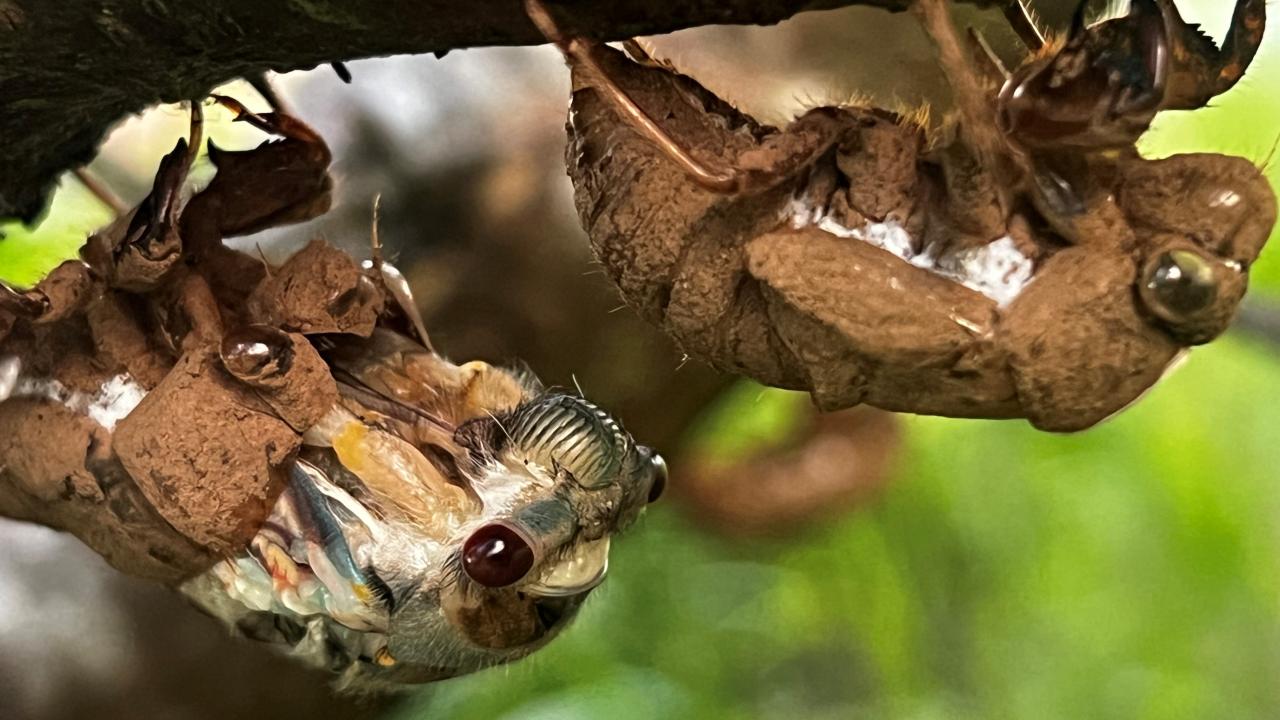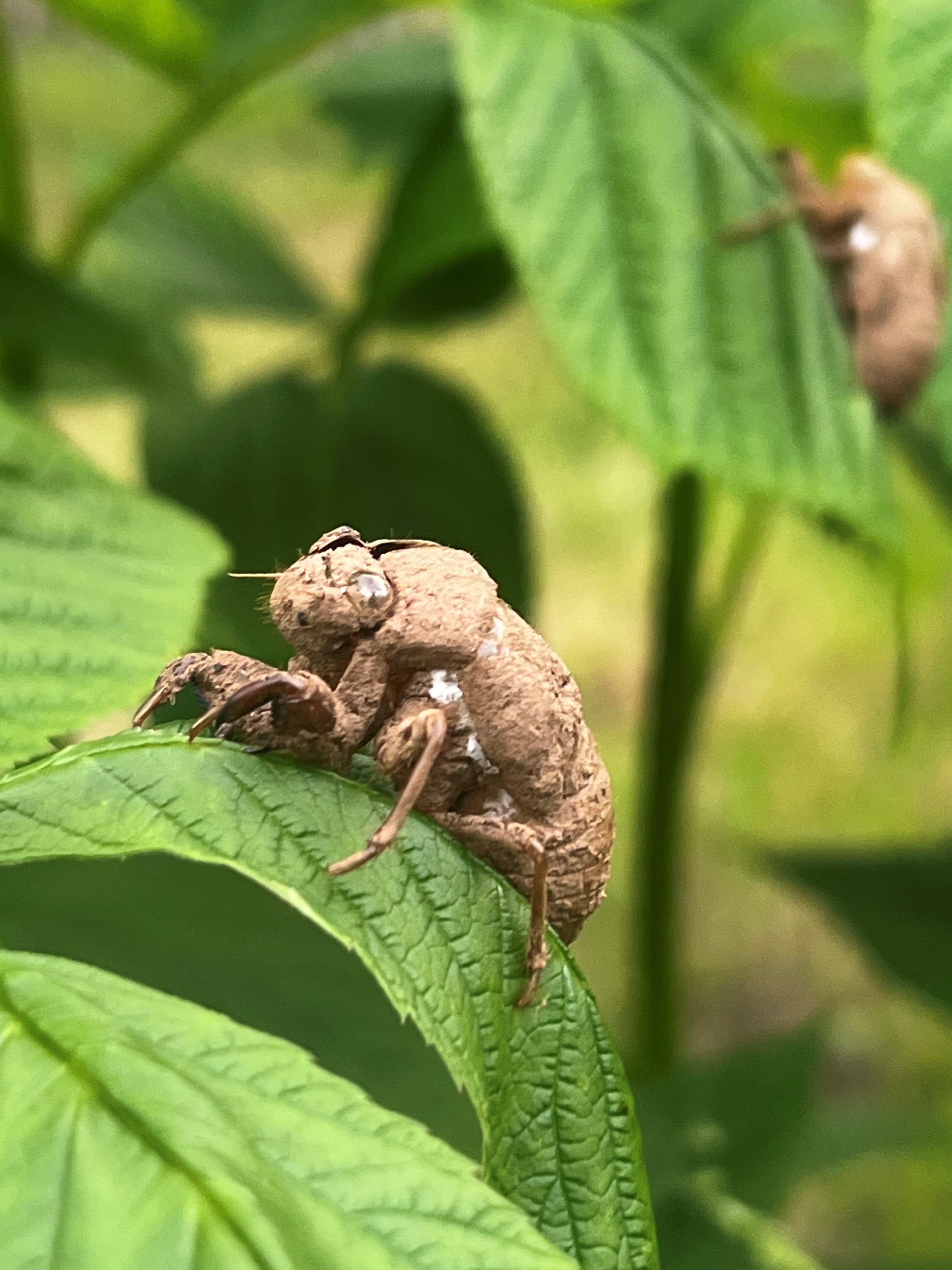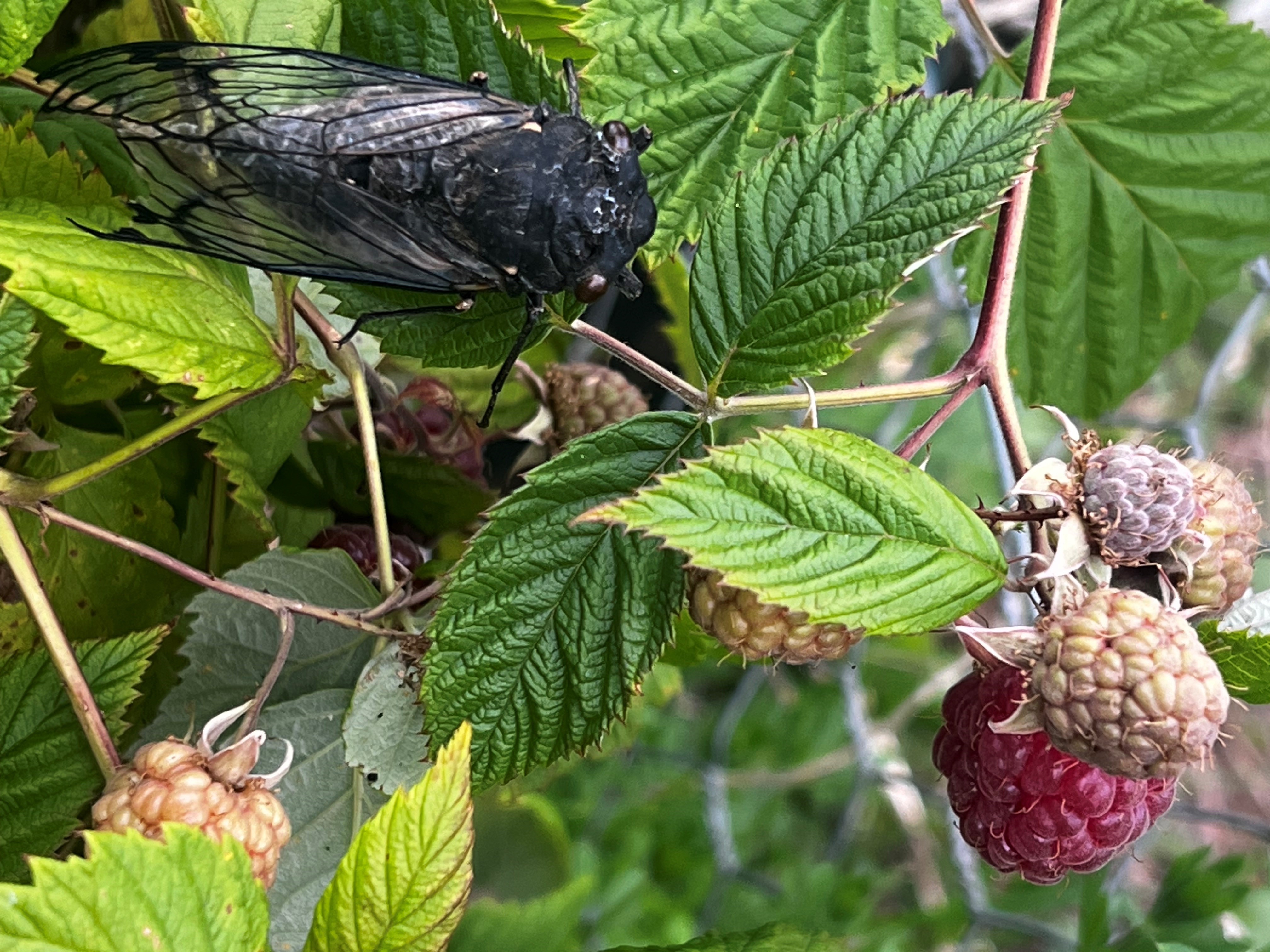What's with those noisy cicadas?

Anyone who lives in the bush like me might have noticed how loud the cicadas are at the moment – I can barely hear the cricket on the television over the incessant, pulsing sound which took me by surprise one day last week.
Walking outside into the deafening chorus, I wasn’t entirely sure what was happening so I wandered further into the bush and I could see some of the cicadas flying around and the ghost-like shells of young cicadas clinging to the tree trunks.
A week later and after a bit of research, I came to realise that I am currently surrounded by sex-crazed males (of the wrong species).
Yep. Male cicadas make the buzzing noise to attract nearby females to their location from the day they’re born, and to increase their chances they work together by the millions in one location to make an even bigger racket.
Apparently it’s all on the back of a rain event three years ago.

Remember when all those bridges went under, roads were damaged and the flood gates closed around the district in October 2022?
That weather event set in motion a lifecycle that three years later had me thinking I had tinnitus.
All the cicada larvae that lives underground, sucking nutrients from tree roots over a two to three-year period, wait until a warm summer evening in December and then emerge en-masse.
A special organ in their body, called the tymbal (no other animal has one) expands and contracts to create the loud cicada song.
The men are literally flexing their muscles, their well-toned abdomen to be exact, and hope for some attention – kind of like on Love Island.
Tasmania’s main cicada is the Redeye Cicada – perhaps they tend to fly very early and very late like the cheap airline seats out of Launceston Airport.
There are also two species of hairy cicadas and what can I say – I’ve met a few.
In good news they do not sting or bite because they don't have the appropriate mouthparts. They're also not harmful to pets, crops or gardens. Cicadas won't eat leaves, flowers, fruits or vegetables, although they may eat some sap from trees and shrubs
Cicadas can also amplify their buzzing sound via air sacs and by moving their wings in different directions.
In contrast the female, ever demure, sidles up to the men and makes a soft clicking noise that only one cicada can hear.
Yes, she is looking for one in a million. I know how she feels.





Add new comment